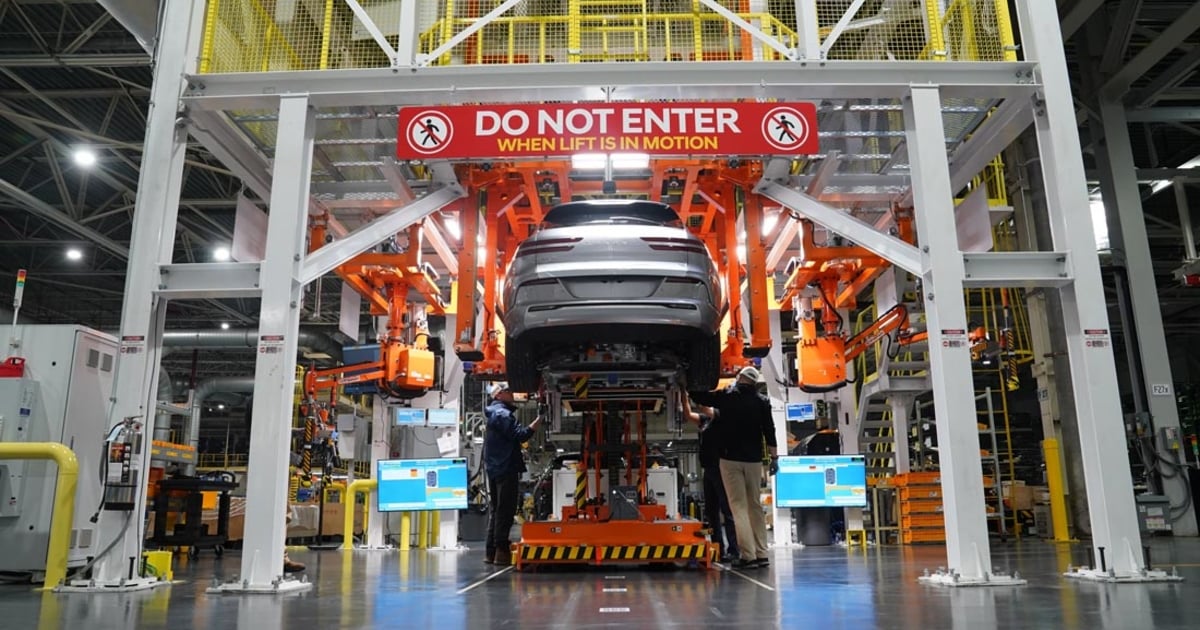
The two existing Hyundai and Kia U.S. factories could play a key role in Hyundai Motor Group’s strategy to localize electric vehicle production ahead of the 2025 opening of its massive $5.5 billion Metaplant in Georgia.
Six new models for Hyundai, Genesis and sibling Kia will come from the EV and battery complex under construction outside Savannah.
Jose Muñoz, CEO of Hyundai and Genesis Motor North America, told Automotive News at the New York auto show this month that all of the EVs Hyundai and Genesis will sell by 2030, which are expected to account for half of its sales, will be built in the U.S.
The Metaplant will have the capacity to build up to 500,000 EVs depending on demand, but its opening is still two years away. In the meantime, Hyundai Motor Group is mobilizing the plants it already operates in the U.S.
Last spring, Hyundai’s plant in Montgomery, Ala., underwent a $300 million upgrade that lasted five months to add a battery installation space adjacent to the building that now assembles the Genesis Electrified GV70 compact crossover, which began full production in February. Part of the investment went to prepare the assembly line for the hybrid version of the Santa Fe midsize crossover.
Kia America, which operates as a separate company despite sharing the same parent, similarly announced that it will bring production of its EV9 electric three-row crossover to its plant in West Point, Ga.
A spokesperson for Kia confirmed it will invest $321 million to upgrade the facility and add testing equipment, resulting in an additional 250 jobs. The EV9 will be the fifth model built at the site and is expected start production in 2024.
Building EVs in the U.S. will allow the sibling brands to remain competitive with rival automakers by obtaining eligibility for the $7,500 federal tax credit that is available only to North American-built EVs.
The plant investments also will allow nimbler operation in the case of future supply chain disruptions and logistical challenges.
Adding the Electrified GV70 to the line in Montgomery marked two important milestones for Hyundai: It is the automaker’s first U.S.-produced EV and the first Genesis vehicle to be built outside South Korea.
Two groups from South Korea traveled to the U.S. to teach team members about safety and battery installation as well as techniques that are critical to producing luxury vehicles, such as greater attention to detail for fit and finish. The Genesis vehicle also requires a different paint process from the plant’s mainstream products.
Building the Genesis there also required the plant to reprogram the automated guided vehicles that deliver heavy parts to the assembly line to carry EV-specific components. The project involved introducing special versions that are capable of hoisting the Electrified GV70’s 1,000-pound battery.
Montgomery is one of only a few U.S. vehicle assembly plants that have been upgraded to manufacture EVs.
In addition to the Electrified GV70, the Montgomery factory builds the Hyundai Elantra compact, Santa Fe, Tucson compact crossover and Santa Cruz compact pickup. Kia’s West Point facility, just 82 miles away, builds the three-row Telluride crossover, Sorento five-seat crossover, Sportage compact crossover and K5 midsize sedan.
The two plants share a supply chain.
It would not be the first time Hyundai has shuffled production to adapt to market conditions. Hyundai moved production of the Santa Fe to the Kia plant in 2010 to make room for the Elantra, said Robert Burns, vice president of human resources and administration for Hyundai Motor Manufacturing Alabama. The Santa Fe returned to Montgomery in 2016.
Hyundai’s production plan is based on sales demand, but the Montgomery plant can churn out 400,000 vehicles a year if needed, Burns said. “No matter how many different models we’re making, our max capacity is 400,000 a year.”
Production there peaked at 399,495 in 2013 thanks to swelling demand for the Elantra and Sonata midsize. It declined to 398,851 the following year and then dropped to 384,519 in 2015. There were 332,832 vehicles built at Montgomery in 2022.